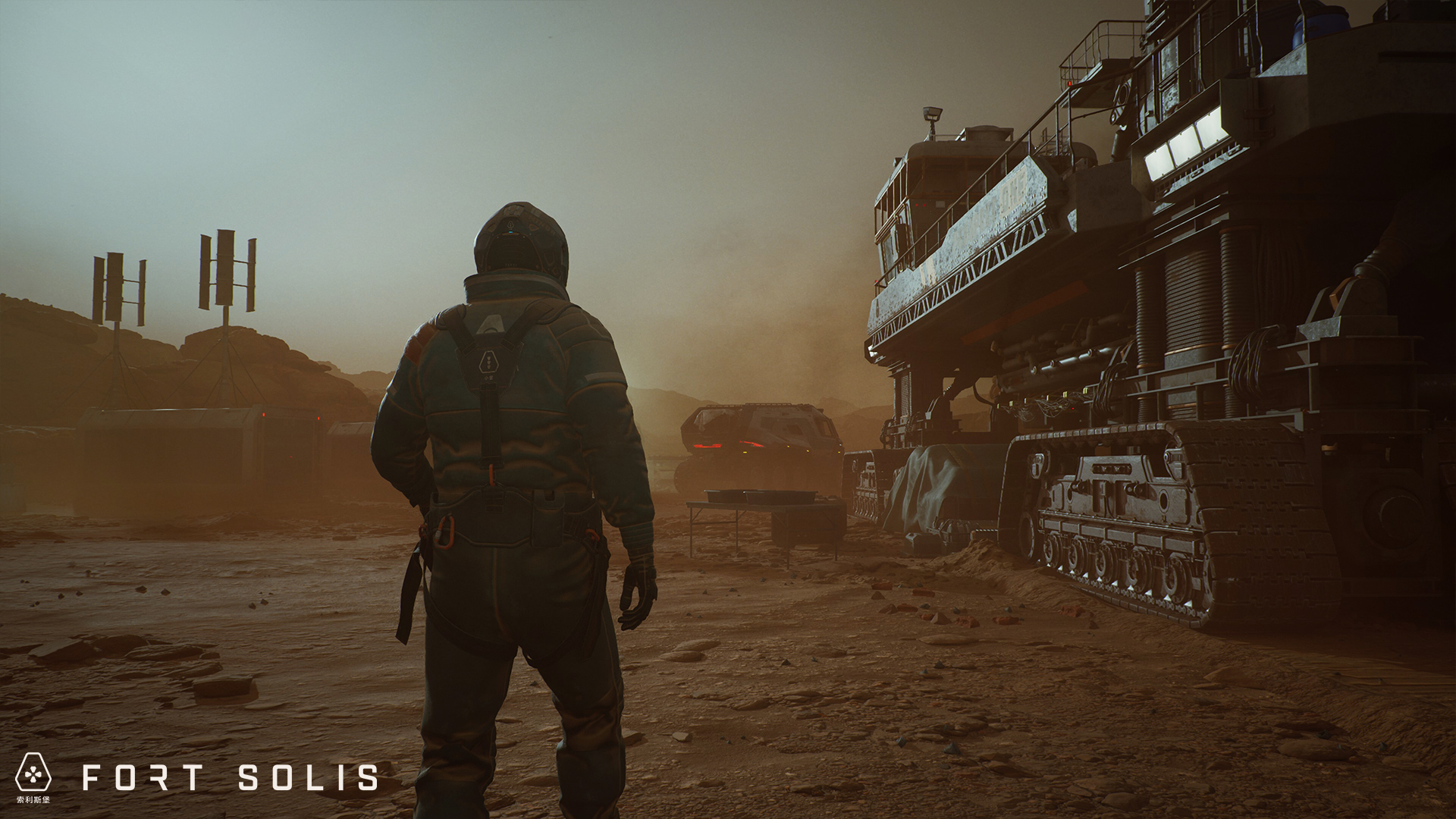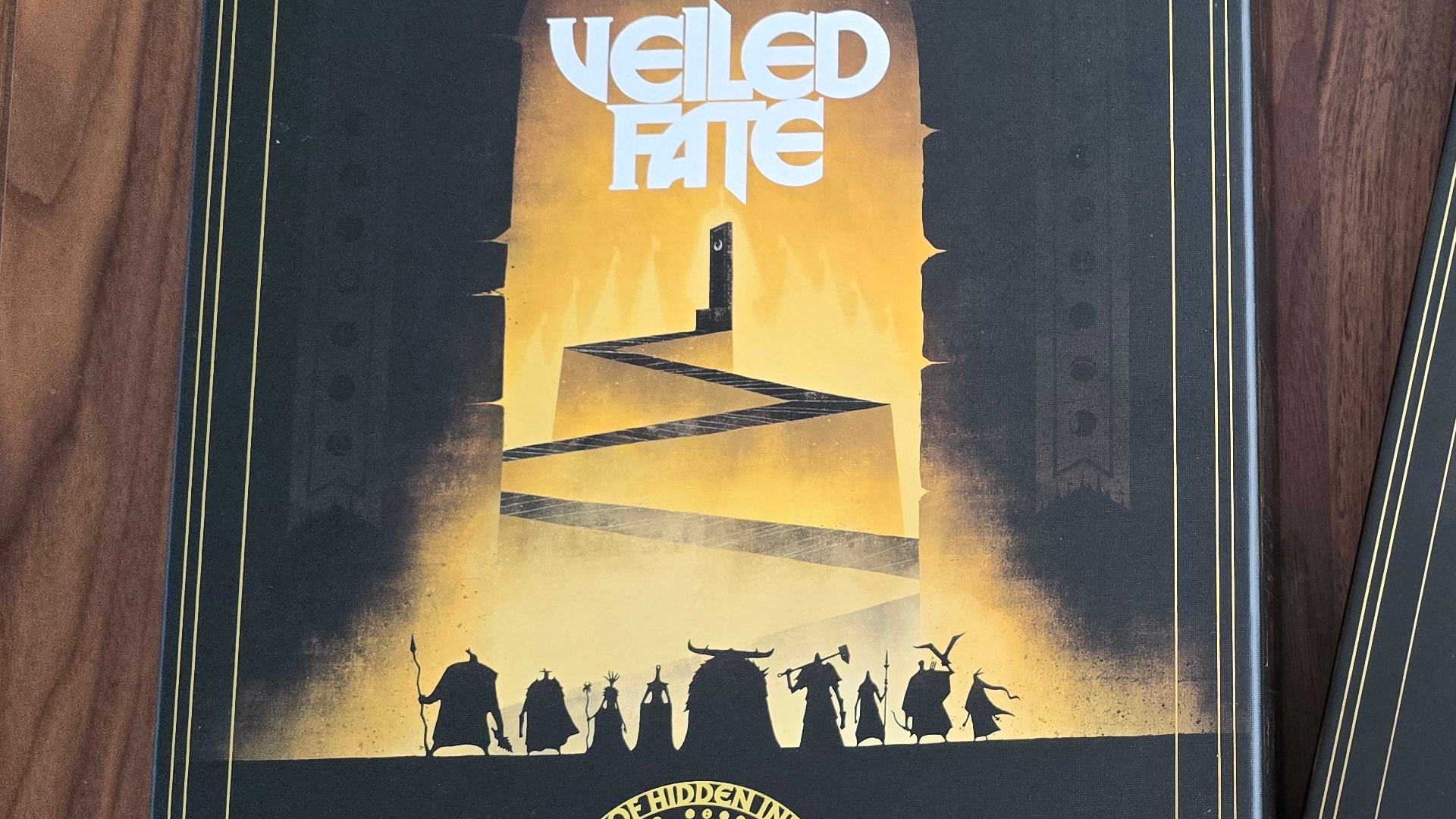GamesRadar+ Verdict
Fort Solis starts strong but quickly struggles to circumvent its shortcomings. Despite the strong visual identity and drive towards absolute immersion, this narrative-adventure ultimately suffers due to its glacial movement and finicky controls. There's promise in the concept, but a lack of refinement is palpable in the execution.
Pros
- +
Strong visual identity
- +
Good voice performances
- +
Solid creative concept
Cons
- -
Slow movement
- -
Finicky controls
- -
Difficult to read in-game text and menus
Why you can trust GamesRadar+
In Fort Solis, you can see glimpses of the future. It's a four-hour narrative adventure that unfolds across a remote mining facility on the planet of Mars, an introspective exploration of the perils of interstellar existence and humanity's unrelenting pressure to progress – no matter the consequences. You can also sense a new path forward for the video game industry, as a small team of 15 leverage the power of new technologies to deliver an experience that should exceed their reach.
Release date: August 22, 2023
Platform(s): PC, PS5
Developer: In-house
Publisher: Fallen Leaf
Developer Fallen Leaf has put forward a confident first effort in Fort Solis. An adventure that dresses its desire to tell a Netflix-style story in shimmering Unreal Engine 5 surfaces, and an all-star voice cast that includes the talents of actors Roger Clark, Julia Brown, and Troy Baker. It's convincing, but not always compelling. Fort Solis is clearly an ambitious creative endeavor, but it lacks the definition and detail that would propel this quiet thriller from abject curiosity to an absolute must-play.
Danger, danger
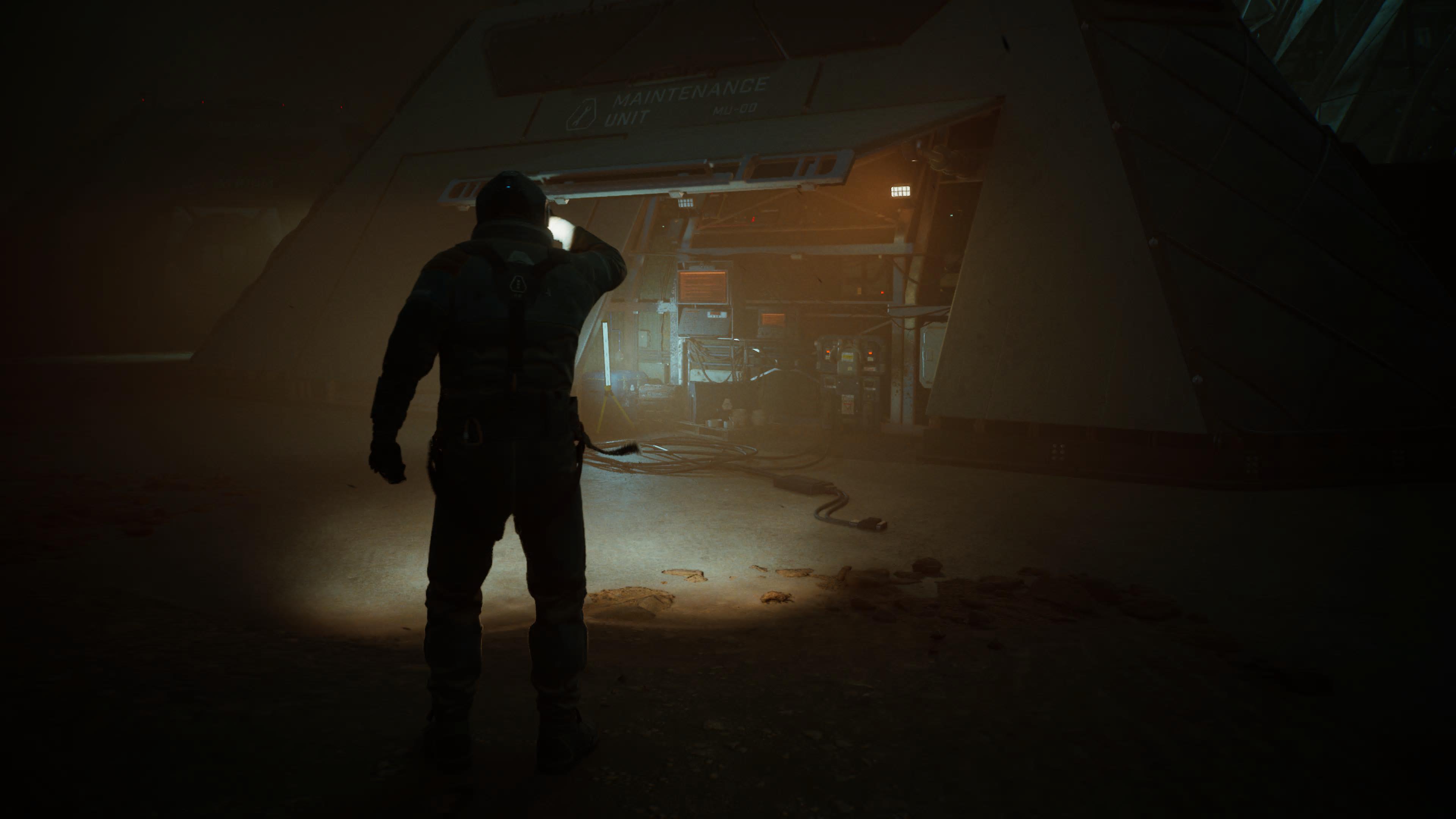
Interaction is limited by design in Fort Solis. You steer engineer Jack Leary between desolate rooms of an apparently-abandoned research facility, responding to a priority alert beacon before an unruly storm cuts communication to the outside world. A button press here, a collected audio log there – the occasional quick-time-event with an unforgiving window. Fort Solis conducts its business in third-person, and at a glacial pace.
When I think about the achievements of the best adventure games in recent years, at least of this flavor – What Remains of Edith Finch, Gone Home, Firewatch, and Tacoma – one thing all have in common is a strong handle on the fundamentals. Fantastic feeling movement, with a world scaled smartly around the player to instill a strong sense of time and place. Fallen Leaf has certainly captured the scale of this place, a believable landscape that's navigated by intersecting service tunnels and locked-down workspaces with a surreal lived-in quality.
Where Fort Solis struggles is in navigation. Leary moves with all the purpose of a sedate tourist, visiting Solis not to investigate the absence of life, but to indulge in an opportunity to see the sights and awkwardly collect juicy-g on the crew from discarded video logs. Even as sheer panic sets in, when Fort Solis shifts narrative gears from tension to terror, all Leary can really muster is a weary amble. It makes exploration an exercise in frustration mitigation, moving through cluttered workspaces with all the grace of a gazelle caught in quicksand.
It's not as if Fallen Leaf makes a compelling in-universe argument for such labored, finicky movement either – something to do with the gravity, or a limitation on your Extravehicular Mobility Unit. I don't know, I've never been to space. But on the rare occasion that Fort Solis wrestles control away from you, it's either for Leary to sprint up a staircase, towards locking doors, or to introduce QTEs with slim margins for error. Not that struggling to complete these matters all that much, as success or failure will likely trigger a slightly different animation rather than an entirely different outcome.
Devil is in the details
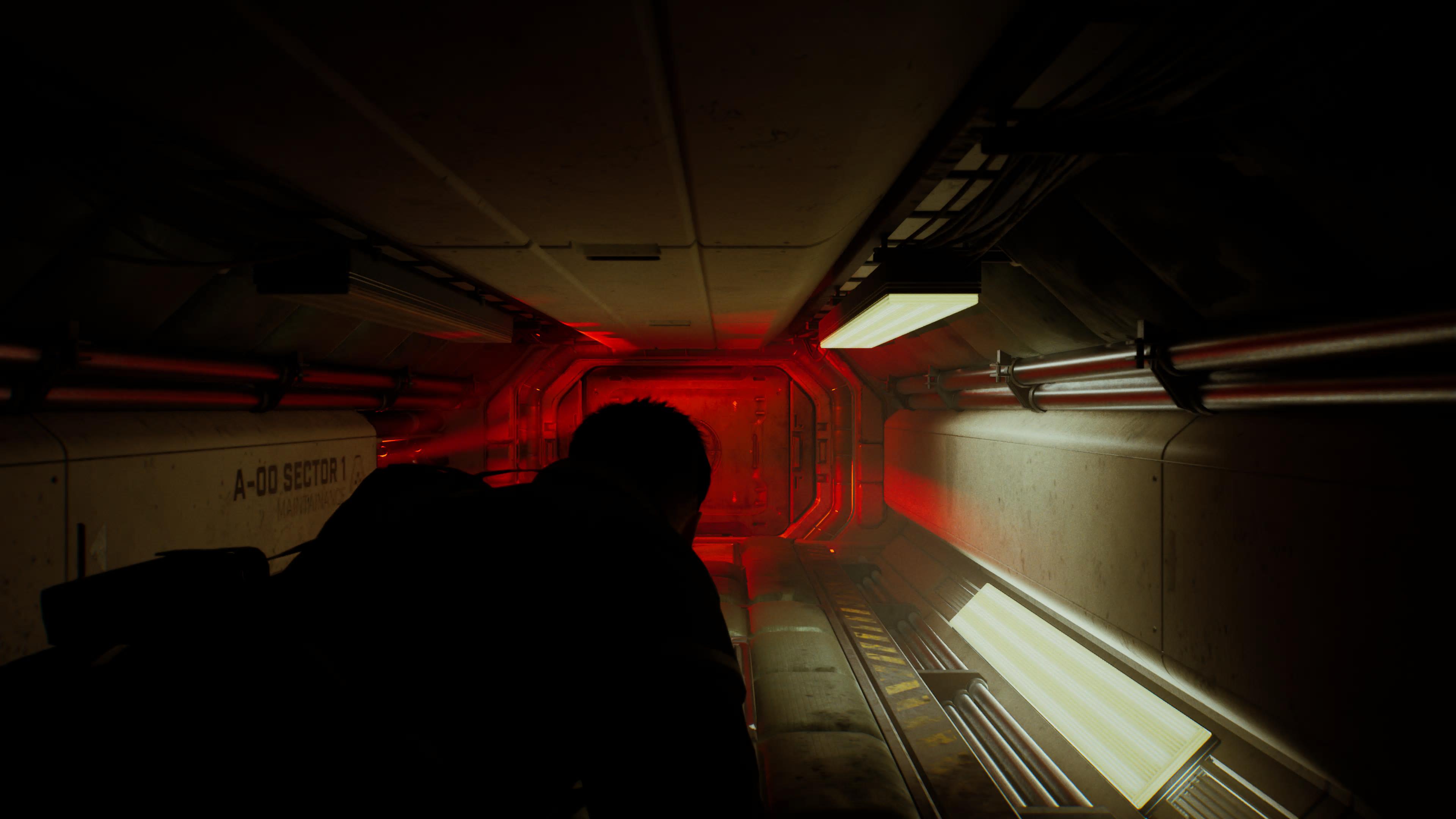
The largest problem with Fort Solis then is one of refinement. By offering such stringent points of interaction within the world, emphasis is drawn to the limitations with a harsher focus. It's difficult to ignore the treacly turning circle and stiff camera control when so much of the experience is focused on building forward momentum. I wonder whether this is down to a desire to promote immersion above all else, or an attempt to get you to slow down and appreciate the static vision of a world wrought by the violent sand storms of Mars.
Weekly digests, tales from the communities you love, and more
This drive towards immersion has other drawbacks. Fort Solis employs a diegetic user interface, where maps, text logs, and surveillance tapes are all presented in-universe. It's a nice touch with an inherent flaw – particularly those playing on PS5, and sitting further from the screen than a PC player might with a monitor. I found the map to be so small when viewed from the wrist-based screen that it was rendered inoperable, while collected text-based exchanges forced me to strain to discern the words on the page. For a story told so primarily through found-footage and email exchanges, this lack of approachability is problematic.
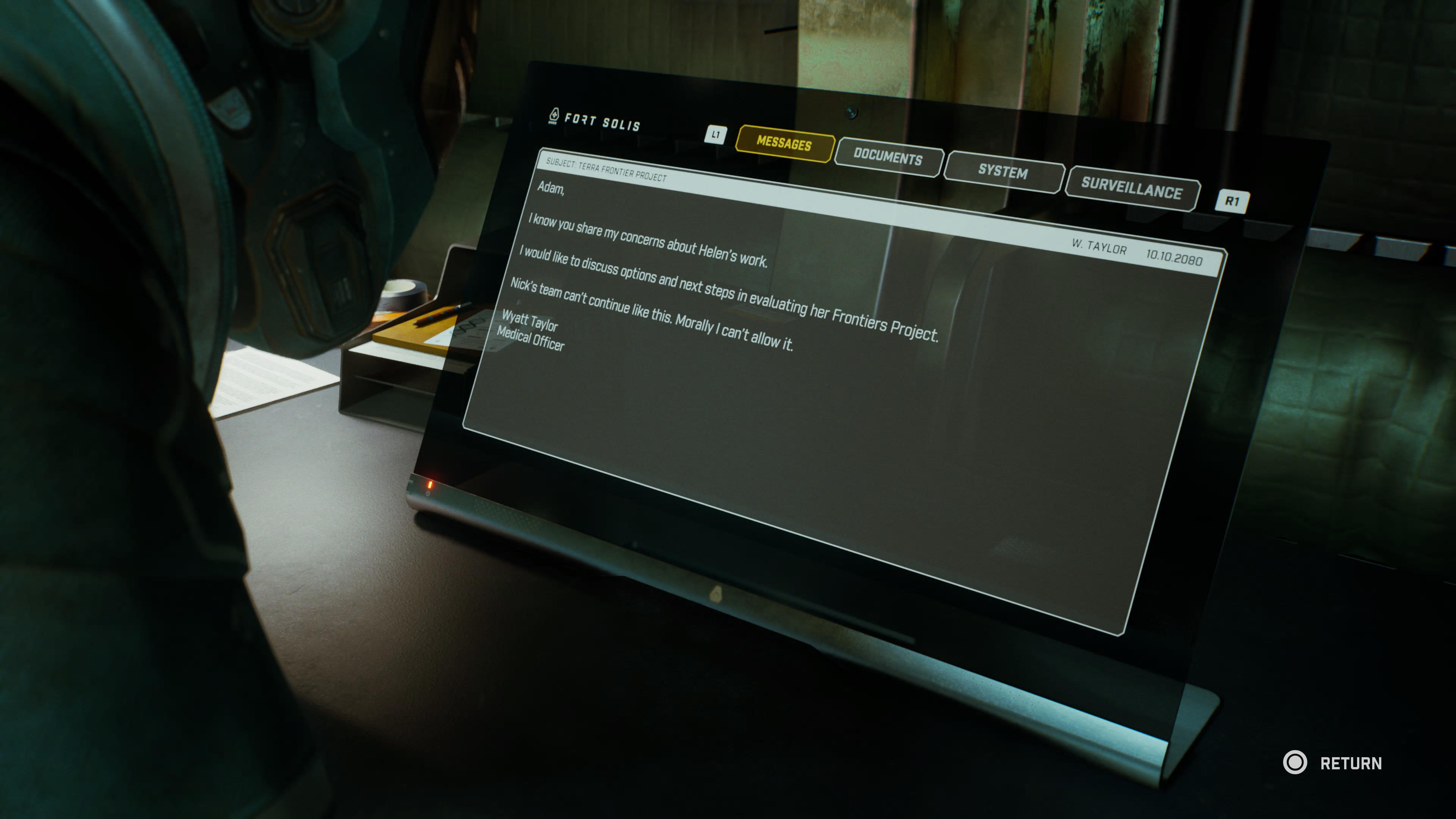
In an environment where video games are taking longer to ship – more complicated to construct and more expensive to produce than ever before – Fort Solis seems like something of an aberration. A succinct four-hour adventure told across four-interwoven chapters, and one of the first Unreal Engine 5 games to be delivered outside of Epic Games. Fallen Leaf has done a lot with seemingly very little, and it's great to see.
Where Fort Solis stumbles is in its grasp of the details. The environments are exceptionally pretty but lack any real depth or volume; facial animations are expressive but lack definition, while character models lack flair and fluidity. Perhaps what I'm trying to say is that Fort Solis lacks personality, something that becomes readily apparent the further you tread through its narrative. It's a good first effort, and ripe for further refinement and expansion. Some of you will certainly enjoy the potential Fort Solis puts forward, but others may find its sharper edges a little too rough to handle.
Fort Solis was reviewed on PS5, with code provided by the publisher
More info
| Genre | Adventure |

Josh is Editor-in-Chief of GamesRadar+. He has over 18 years experience in both online and print journalism, and was awarded a BA (Hons) in Journalism and Feature Writing. Josh has contributed to world-leading gaming, entertainment, tech, music, and comics brands, including games™, Edge, Retro Gamer, SFX, 3D Artist, Metal Hammer, and Newsarama. In addition, Josh has edited and written books for Hachette and Scholastic, and worked across the Future Games Show as an Assistant Producer. He specializes in video games and entertainment coverage, and has provided expert comment for outlets like the BBC and ITV. In his spare time, Josh likes to play FPS games and RPGs, practice the bass guitar, and reminisce about the film and TV sets he worked on as a child actor.
